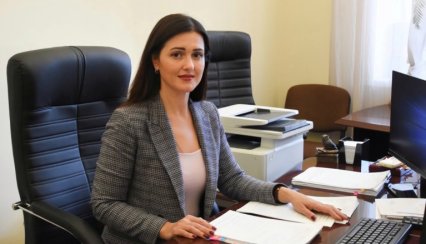Contact center of the Ukrainian Judiciary 044 207-35-46

During the workshop entitled "The Peculiarities of Consideration of Asylum Seekers' Cases by National and International Judicial Bodies", Olena Hubska, Judge of the Administrative Cassation Court within the Supreme Court, acquainted the participants with the case law in relevant disputes. The event was organized by the National School of Judges of Ukraine together with the Right to Protection Charitable Foundation with the support of the UN Refugee Agency (UNHCR).
Olena Hubska, Judge of the Administrative Cassation Court within the Supreme Court, noted that due to the amendments to the Code of Administrative Procedure of Ukraine (CAP), which introduced new filters, only a small percentage of cases involving foreigners on the territory of Ukraine were considered in cassation proceedings by the Supreme Court. Thus, under Art. 12 of the CAP, cases involving the stay of foreigners or stateless persons on the territory of Ukraine are cases of minor complexity.
However, the Supreme Court may accept a minor case for consideration, in particular if: the cassation appeal concerns an issue of law that is fundamental to the formation of a uniform law enforcement practice; the case is of significant public interest or is of exceptional importance for the party to the case that files a cassation appeal (Article 328 of the CAP).
Highlighting the case law in the relevant category, the judge spoke about the Resolution of the Supreme Court of January 29, 2020 in case No. 308/7395/16-a, in which the court, in particular, drew attention to the fact that the provisions of Part 3 of Art. 29 of the Law of Ukraine "On the Legal Status of Foreigners and Stateless Persons" provided for the forced expulsion of foreigners admitted under an international readmission agreement only if there is no readmission agreement between Ukraine and the country of citizenship or the country of previous permanent residence of such foreigners.
Olena Hubska analyzed the Resolution of the Supreme Court of February 13, 2020 in case No. 815/5479/17, in which the plaintiff stated that the subject of power, in violation of the Law of Ukraine "On Refugees and Persons in Need of Additional or Temporary Protection", did not consider his application-form for granting refugee status, but provided an answer guided by the Law of Ukraine "On Citizens' Appeals".
Speaking about the practice of forced expulsion from the territory of Ukraine and detention in order to identify a citizen of another state, the speaker drew attention to the Resolution of the Supreme Court of September 24, 2021 in the case No. 522/24609/17. In this case, the court concluded that due to the fact that the decision to forcibly return the person had not been executed, he/she had no documents which entitle the person’s right to stay in Ukraine, as well as documents and proof of legal crossing the state border of Ukraine, the defendant did not belong to persons who had been granted refugee status and was not a person in need of additional protection, and therefore there was no reason to believe that the person fell under the protection of Art. 3 of the Convention for the Protection of Human Rights and Fundamental Freedoms or Art. 31 of the Law of Ukraine "On the Legal Status of Foreigners and Stateless Persons".
Olena Hubska also touched upon the issue of court compliance with the process during the consideration of cases, spoke about violations of procedural law regarding the procedure for summoning a person and hiring an interpreter (Supreme Court Resolution of June 24, 2021 in case No. 460/2342/19).
The judge also gave an account of the legal opinion set out in the Resolution of the Supreme Court of September 30, 2021 in case No. 815/149/18 on appealing the decision of the subject of power to refuse to recognize a person as a refugee or a person in need of additional protection.